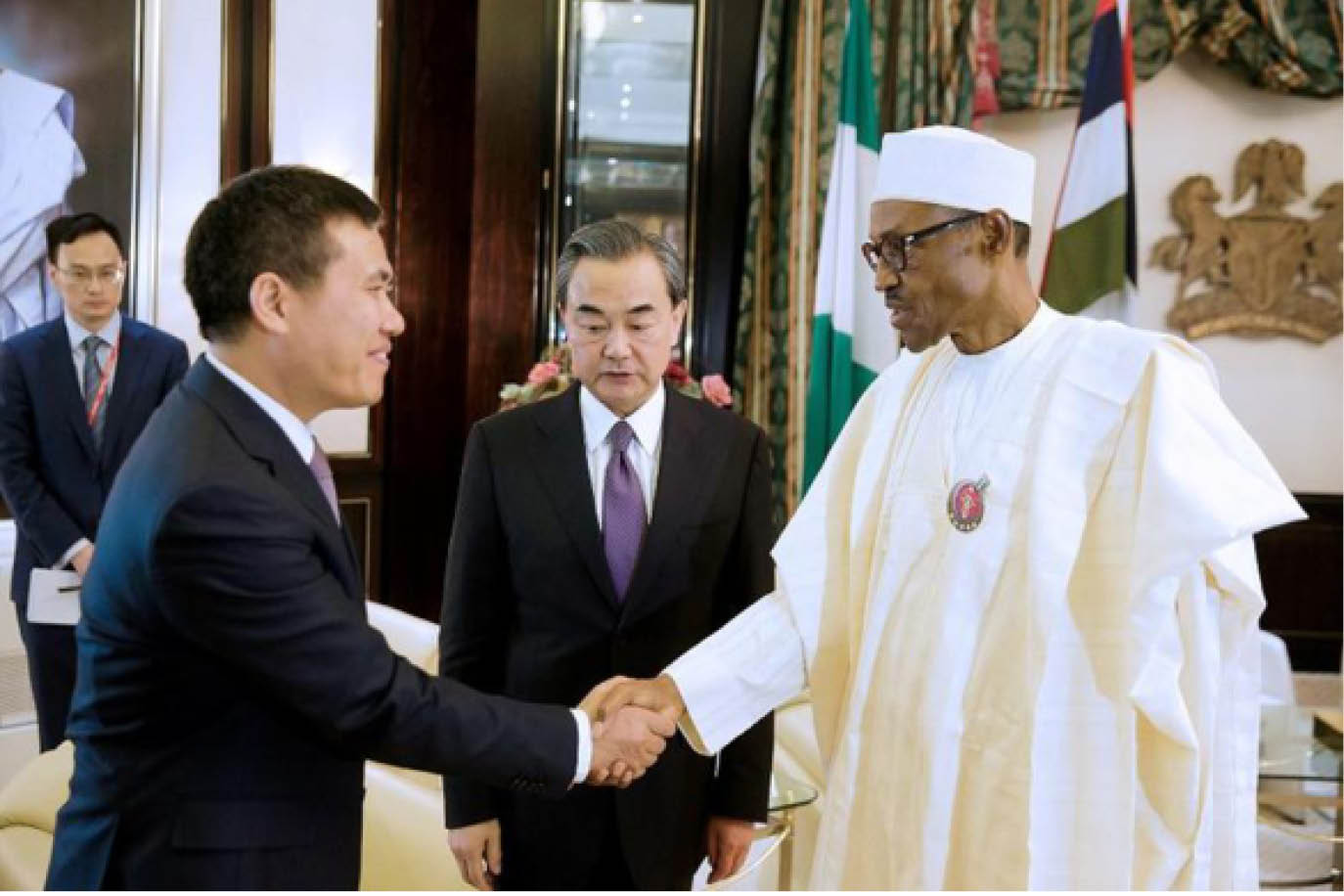It is no longer news that the Chinese Foreign Affairs Minister, Mr Wang Yi, visited Nigeria on January 5, 2021, as part of his country’s annual African tours. What is new is the embrocation of relations of the visit in the COVID-19 era that has unmasked how unilateral and protectionist the world has become. No advanced nation has sent its high-ranking officials to the continent in this challenging time.
The visit came at the crossroads of whether or not 2021 would be better than 2020 in terms of alleviation of socio-economic constraints that the pandemic has unleashed. His reception should be regarded as a reassurance that the Nigerian government is keen to address the current challenges its citizens are undergoing. It should also be considered as the two partners’ readiness for future engagements come what may. From the records, it is important to note that Chinese foreign ministers have chosen Africa for their first overseas visit each year since 1991, which represents how deep the Chinese government considers its bilateral and multilateral relations with the continent.
- Tomb of sultan who fought the British neglected in ghostly Mbormi
- 30 days after, reopened borders still trickling back to life
In his remarks on the strategic position Nigeria occupies in Africa, Mr Yi told President Muhammadu Buhari that, “Nigeria, as a major African country, has always occupied an important position in China’s diplomacy with Africa.” Hence “mutual understanding, mutual trust and mutual support” have significantly defined the 50-year-old diplomatic ties. The visitor expressed promising remarks during his talks with the Nigerian Foreign Minister, Geoffrey Onyeama. But the hallmark of the visit appears not to be the N6bn (100m Renminbis) donation to Nigeria, but the signing of a memorandum of understanding on the establishment of the China-Nigeria Intergovernmental Committee to guide future cooperation and the seven important consensuses reached.
These consensuses are to strengthen cooperation against the pandemic; setting up of an intergovernmental committee to advance mutually beneficial cooperation in various fields, to deepen the Belt and Road cooperation by aligning both countries’ development plans; to accelerate Nigeria’s industrialisation and independent capabilities through vigorously promoting the construction of key projects; extending cooperation into areas, including digital economy and green economy in order to achieve diversified development; to deepen military and security cooperation to enhance national security; and, to closely coordinate regional and international affairs, practice multilateralism, and safeguard the common interests of developing countries. But what do these consensuses represent or hold for brighter future relations between Nigeria and China?
Firstly, the initiation of the consensuses into the cooperation brings to the fore the readiness of Nigeria and China to embrace broader prospects for greater impact on peace, security and development of Nigeria. Nigeria is going through fundamental challenges from violent extremism, banditry, farmers-herders conflicts, kidnapping, cultism and other nefarious activities, which are mostly driven by unemployment, poverty and ignorance. If both parties consciously work through the cardinal agreements, then one could be assured that the underlying drivers of socio-economic and political threats and challenges would be mitigated.
Secondly, despite their turbulent history and the wide range of problems of nation building, as well as changes in international situations, Nigeria and China have remained committed to their ties. It is a commendable goodwill gesture, perhaps coming at this particular period when Nigeria is expanding the economic, industrial and infrastructure base to create needed opportunities for its burgeoning youth population. So hosting a diplomat in the capacity of State Councillor and Foreign Minister of China could accelerate the government’s plans and processes towards tangible results and success. But it is very important for the government and other local investors to take advantage of the opportunity.
Thirdly, the visit came amid the turbulent time of a once-in-a-century pandemic, which signifies a great resilience and solidarity both nations have demonstrated for each other for decades. The Chinese taglines of equal friendship, equal partners and prosperity in solidarity have become permanently affixed to the relations. For example, President Buhari, while pleased with the results of the 50 year-old relations, acknowledged that it was only China that bought Nigerian oil at the time its price fell in the global market. Just in this COVID-19 pandemic when nations are paying attention to their own people, China sent a medical team and supplies to Nigeria in 2020. Besides overcoming the rising unilateralism and protectionism in the world where no single hegemon to manage the multiplicity of global issues that required concreted action, this diplomatic gesture means that coronavirus or any other pandemic cannot hinder the friendship and cooperation both have fostered.
Likewise, Nigeria has also supported China as attested to by Mr Yi when he thanked Nigeria “for siding with China on issues concerning China’s core interests.” For instance, Nigeria voted for China in its bid to become a permanent member of the United Nations Security Council. The establishment and development of the Forum of China-Africa Cooperation (FOCAC) since 20 years ago can also be attributed to Nigeria’s support.
Fourthly, as the largest economy and the most populous country in Africa, Nigeria needs strategic support in which China can offer. The visit was a strong boost to Nigeria-China strategic partnership and friendly cooperation. Currently, the bilateral trade between Nigeria and China stands at about $20bn, with Nigeria exporting about $2bn to China in the form of mineral oils and fuels, oil seeds, plastics, rubber, animal products, and fruits. China exports machinery and mechanical products, IT computers, mobile phones and digital technologies. The extent of future relations will be determined by how their trade imbalance and opportunity gaps are bridged. The Intergovernmental Committee has a lot to do in this regard.
As the year 2021 marks the 50th anniversary of their diplomatic ties, Mr Yi’s visit is expected to provide further initiatives that would stabilise China’s policies and regulations against a backdrop of increasing world disorder. This becomes necessary, as Nigeria has suffered from the decline of crude oil and raw material prices in the global market. Besides the development roadmap of both Forum of China-Africa Cooperation, and Belt and Road Initiative, the focus of the two partners should be on climate change and availability of COVID-19 vaccines that will be an example for others. Strengthening communication and cooperation will enhance collaboration in combating the virus. Though China does not attach political conditions to their projects, but it does not mean it should not work together with the Nigerian government and officials to promote peace and security of their host communities.
Similarly, the future relations would be viewed from how China obeys the nation’s labour laws and respect the local customs. Fortunately, Mr Yi cautioned Chinese companies operating in Nigeria over this fear.
Africa, and Nigeria in particular, should translate this commitment into desired results for their people whose expectations of such foreign relations are always high but reasonable. Their general perception of the relations is that there must be increased standards of living and development for them since their government is obtaining loans, grants, and other material and technical supports from China. The inability of the diplomatic relations to turn their lives around, as well as benefit from the people-to-people exchanges, prosperity and ease the trade imbalance would be deemed as a failure and unworthy of having.
While building towards a greater common understanding and a more peaceful existence of their people, the Nigeria-China cooperation should come to that shared reality of closer community. Nigeria must seize the opportunity it offered to better the lives of the people because they do not come everyday.
Babatunde is a fellow of peacebuilding and evidence practitioner at Nigeria’s Institute for Peace and Conflict Resolution, Abuja ([email protected])

 Join Daily Trust WhatsApp Community For Quick Access To News and Happenings Around You.
Join Daily Trust WhatsApp Community For Quick Access To News and Happenings Around You.


